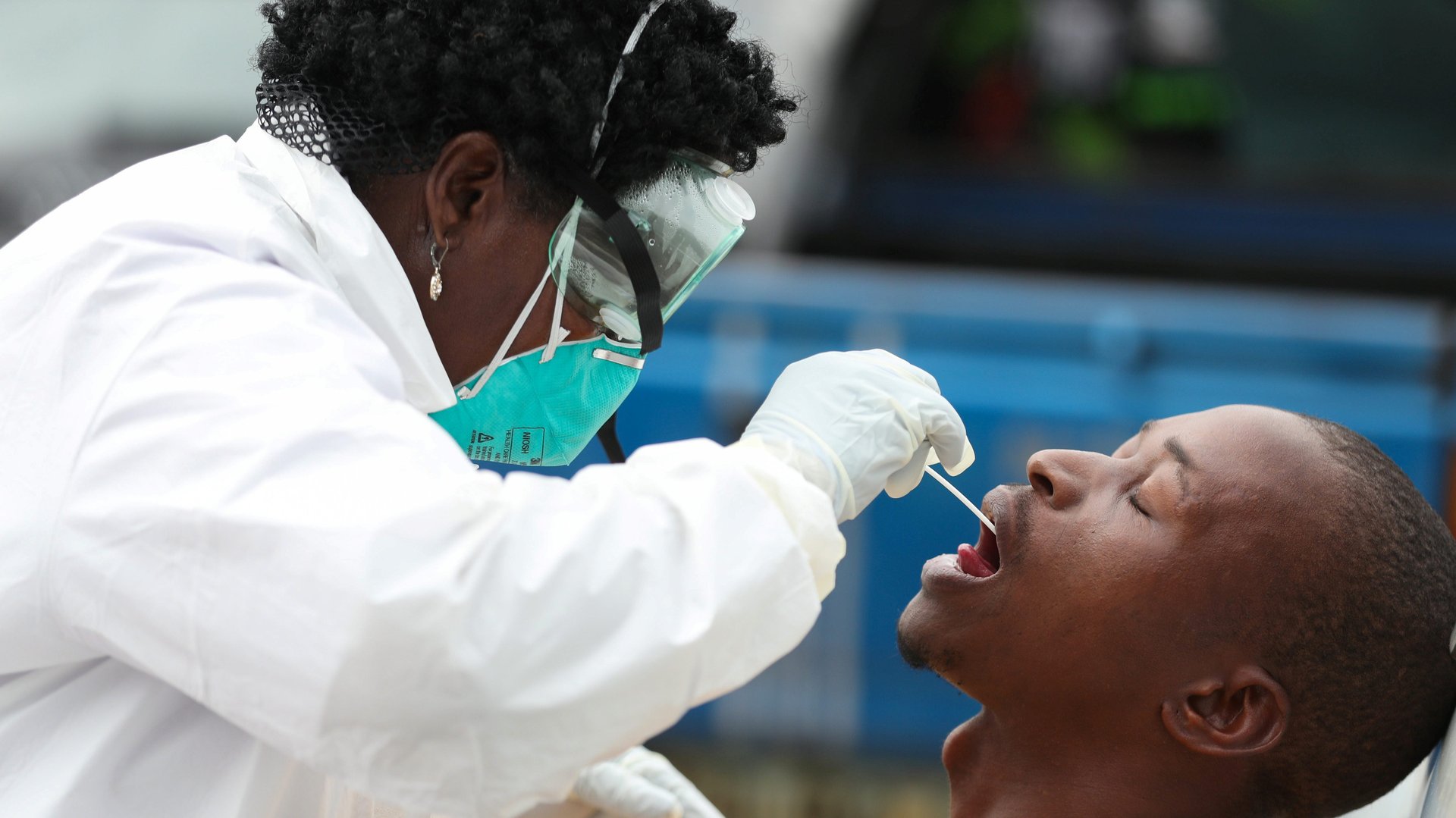South Africa is leading the continent’s coronavirus testing challenge boosted by private labs
As South Africa ramps up its Covid-19 testing, other African countries are being left behind and do not know the extent of the novel coronavirus’ spread among their people.


As South Africa ramps up its Covid-19 testing, other African countries are being left behind and do not know the extent of the novel coronavirus’ spread among their people.
South Africa has had one of the speediest and most forceful responses to the Covid-19 pandemic—it decided to shut down its borders and put residents into physical lockdown before it announced its first death from Covid-19, a respiratory disease that has caused more than 50,000 deaths worldwide.
As of April 3, South Africa had recorded 1,462 cases and five deaths, from coronavirus. Africa has had 6,860 cases and 269 deaths, the numbers are still relatively low compared with Europe and the United States.
Countries which were slow to react are seeing some of the highest numbers of deaths due to the disease. The United States, which now has the highest number of confirmed cases, has still not instituted a national lockdown.
Earlier this week, the World Health Organization (WHO) director-general Tedros Adhanom Ghebreyesus said: “We have a simple message for all countries: test, test, test.”
South Africa is in the throes of a mass testing campaign, with plans to increase its surveillance. Its large health research and disease-tracing machinery, honed by years of coping with its HIV epidemic, has swung into action, driving testing and surveillance.
To date, it has tested more than 47,000 people, although experts and health officials say that much more needs to be done to try and isolate infected individuals. Head of the Medical Research Council Glenda Gray told Quartz Africa that the country should be testing about 25,000 people a day. “We’re far behind.”
Much of the concern about the impact of coronavirus on Sub Saharan Africa has centered around what the WHO has described as the region’s “fragile health systems”. But in South Africa, the continent’s most advanced economy but also one of the most unequal in the world, the vast majority of cases have been tested by private laboratories, as opposed to state facilities.
South Africa has a two-tiered healthcare system, with wealthier individuals opting for private healthcare and poorer residents reliant on state services. The first cases of Covid-19 were reported in people returning from other countries, and people in this income bracket in South Africa tend to have medical aid and visit private rather than public healthcare facilities.
In the face of increasing local transmission—and the threat of Covid-19 spreading to the majority of the country, who are not able to afford private healthcare or testing—the National Health Laboratory Service has said that by the end of April, it will be able to process approximately 36,000 tests in 24 hours.
But other countries in the region do not have these sorts of resources. On April 2, Zimbabwe had tested only 316 people for the virus, and had nine positive cases and one death. It declared a national lockdown on Mar. 29. In Namibia, whose testing is done locally and in South Africa, there have been 306 tests, and 11 confirmed Covid-19 cases.
The Nigeria Centre for Disease Control says that testing capacity at its laboratories has increased to 1,500 tests a day, but a recent report found that by Mar. 22 Nigeria had only tested 152 people. There are currently 190 cases in the country, although experts fear that there are many more.
Dr Matshidiso Moeti, Africa regional director of WHO, told a press briefing on Thursday. A serious challenge for many countries in the region is the availability of testing kits.
At the moment, many test kits are being donated to African countries from philanthropic individuals, such as Alibaba’s Jack Ma, and overseas governments; or distributed by the African Union.
In its initial stages, the spread of the pandemic seemed to have by-passed many African countries. Now that the virus is spreading locally, countries’ struggling healthcare systems are already showing their weaknesses—and that is before the number of severely sick people begins to multiply.
Sign up to the Quartz Africa Weekly Brief here for news and analysis on African business, tech and innovation in your inbox